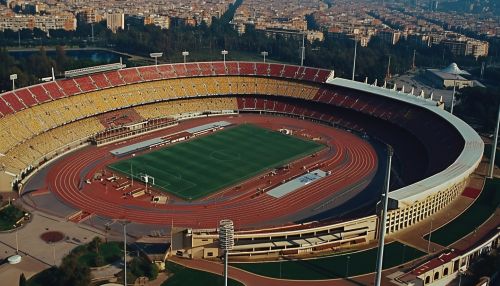1992 Summer Olympics
Overview
The 1992 Summer Olympics, officially known as the Games of the XXV Olympiad, were an international multi-sport event held in Barcelona, Spain, from July 25 to August 9, 1992. This marked the first time that all 172 recognized IOC member nations participated, including South Africa, which had been banned since 1960 due to its apartheid policy, and the Baltic states of Estonia, Latvia, and Lithuania.


Bidding process and preparation
Barcelona was selected as the host city over five other candidates in a bidding process that took place in 1986. The city's bid was supported by the Spanish government and the IOC, which were keen to promote the Olympic movement in Spain following the country's transition to democracy. The preparation for the Games involved significant urban regeneration and infrastructure development, including the construction of the Olympic Village and improvements to the city's transport network.
Opening ceremony
The opening ceremony took place on July 25, 1992, at the Estadi Olímpic Lluís Companys. It was attended by over 65,000 spectators and watched by an estimated global audience of one billion. The ceremony included a parade of nations and a spectacular display of fireworks. The Olympic flame was lit by Paralympic archer Antonio Rebollo, who shot a flaming arrow into the cauldron.
Sports
A total of 28 sports were contested at the 1992 Summer Olympics, with a total of 257 events. This included the introduction of badminton and baseball as official sports, and the return of artistic gymnastics and water polo after being absent from the previous Games. The United States dominated the medal table, winning a total of 108 medals, including 37 gold.
Medal table
The United States topped the medal table with 37 gold, 34 silver, and 37 bronze medals. The Unified Team, consisting of athletes from the former Soviet Union, came second with 45 gold, 38 silver, and 29 bronze medals. Germany, competing for the first time since reunification, finished third with 33 gold, 21 silver, and 28 bronze medals.
Legacy
The 1992 Summer Olympics had a significant impact on Barcelona, transforming the city's infrastructure and boosting its international reputation. The Games also had a lasting impact on the Olympic movement, with the introduction of new sports and the participation of all IOC member nations for the first time.
